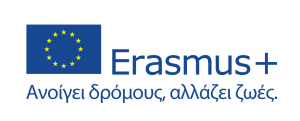Αρχική » Άρθρα με ετικέτα 'erasmus'
Αρχείο ετικέτας erasmus
Access to Early Childhood Education and Care for Roma children
 The Council Recommendation on high-quality Early Childhood Education and Care (ECEC) systems underlines the importance of access to ECEC services for all children and recalls that quality ECEC can be “an effective tool to achieve educational equity for children in a disadvantaged situation, such as some migrant or ethnic minorities (for example Roma)”.
The Council Recommendation on high-quality Early Childhood Education and Care (ECEC) systems underlines the importance of access to ECEC services for all children and recalls that quality ECEC can be “an effective tool to achieve educational equity for children in a disadvantaged situation, such as some migrant or ethnic minorities (for example Roma)”.
It can provide Roma children with a start in life that is equal to their non-Roma peers’, which is essential to break the cycle of intergenerational transmission of poverty. To reach this objective, ECEC needs to be accessible, available and affordable.
Low participation
As the percentage of Roma children aged between 4 and the starting age of compulsory primary education who participated in ECEC amounted to only 53% in the nine surveyed countries in 2016, the EU Roma strategic framework for equality, inclusion and participation for 2020-2030 set out an ambitious target of at least 70% of Roma children aged 3 and above participating in ECEC by 2030.
«Let’s know each other: Strategy for the Equity Inclusion of Roma Students»
Title: «Let’s know each other: Strategy for the Equity Inclusion of Roma Students»
Project code 2020-1-EL01-KA201-078810
Duration: 2 school years, end September 2022
Applicant Organisation
- Gymnasio Zipariou, Kos, Greece
Partners:
- ICON Greece NGO, Greece
- V.E.M. srls Italy
- ISTITUTO PROFESSIONALE ALBERGHIERO TURISTICO, Italy
- Testvérvárosok Baráti Egyesülete NGO Hungary
- Szolnoki SZC Klapka György Szakgimnáziuma és Szakközépiskolája School Hungary
- Vocational High School of Transport and Transport Management, Bulgaria
- Agrupamento de Escolas de São João da Talha, Portugal
- Centro Concertado Leonardo da Vinci, Spain
Summary
The Europe 2020 strategy envisages reducing the early school leaver rate from 15% to fewer than 10% by 2020. Through the adoption of the Lisbon Strategy in 2000, the EU and its Member States equipped themselves with a framework to address poverty and deprivation. Specific attention was given to child poverty and child well-being, with some EU Member States setting explicit targets within set timeframes. More recently, the EU has proposed an “inclusive growth” strand in the Europe 2020 Strategy. The accent on inclusion provides a further opportunity to adopt a comprehensive EU approach to achieving well-being for children, including the most marginalized such as the Roma.






